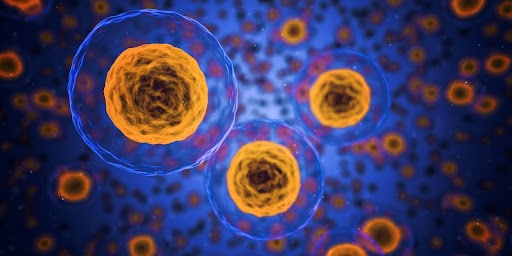I have written a lot about various autoimmune conditions where your body’s defense mechanism turns against you and becomes your own enemy. Today, I want to bring your attention to another immunological condition during which overactivation of mast cells leads to a disorder called mast cell activation syndrome (MCAS).
This condition is often overlooked or misdiagnosed, so raising awareness about MCAS, its symptoms, diagnosing and possible treatment options is extremely important.
Let me begin by talking about the mast cells. Actually, mast cells are a type of white blood cell that are found throughout the body (including under the skin, near lymph vessels, lungs and intestines) and actively participate in our immune defense. While their primary role is to fight infections, they are also involved in allergic reactions, wound healing, the production of new blood vessels, etc.
Mast cells can be activated by microbial pathogens, physical injury, allergens and other foreign compounds. Once triggered, these cells release mediators like histamine, neutral proteases, etc.
A distinction must be made between MCAS and mastocytosis. In the case of mastocytosis, mast cells gather in an organ and this collection of cells erratically releases chemicals that hurt your body. However, during MCAS the number of cells is within the norm, however, their function becomes compromised and the production of mediators is altered.
In presence of mast cell activation syndrome, mast cells release an excessive amount of chemical mediators, which causes chronic symptoms, as well as a cascade of cardiovascular, neurological, respiratory, gastrointestinal, and dermatological problems.
Identifying triggers that cause the flare-ups of symptoms has proven to be challenging. Studies indicate that stress can significantly worsen MCAS symptoms. Other triggers include infections, medication, venom, certain foods and fragrances.
Usually, a person suffering from MCAS develops problems in multiple organ systems. The symptoms come and go and can vary in both duration and severity. While some people develop a severe case of MCAS overnight, others start out with mild symptoms that worsen over time. Symptoms related to different systems in the body include:
- Cardiovascular symptoms – lightheadedness, dizziness, arrhythmia, and tachycardia.
- Respiratory symptoms – congestion and coughing.
- Gastrointestinal symptoms – diarrhea, cramping, intestinal discomfort, nausea, vomiting, swallowing difficulty, throat tightness.
- Dermatological symptoms – flushing, hives, easy bruising, itchiness.
In some cases, MCAS also causes anaphylaxis, which is a serious and potentially fatal allergic reaction that requires urgent medical attention. The symptoms of anaphylaxis caused by MCAS include itchy rash, inability to breathe due to swelling in the throat or tongue, loss of consciousness, low blood pressure, and medical shock.
Diagnosing MCAS
People with mast cell activation syndrome end up undergoing a number of tests prior to being diagnosed with MCAS. This is caused by the fact that the symptoms of MCAS are very broad and diverse and as a result, physicians start by ruling out more commonly occurring diseases with similar symptoms.
Usually, the first step involves seeing an internist or a family practitioner who starts analyzing the combination of symptoms and rules out more common causes of the disease. These conditions include inflammatory bowel disease, autoimmune diseases, estrogen or testosterone deficiency, medullary thyroid cancer, etc.
After that, the patients are checked for allergies to determine whether the symptoms are caused by an allergic reaction. Once the allergies are also ruled out, physicians might consider mast cell-related diseases like MCAS or mastocytosis.
However, the awareness and knowledge about MCAS and its diagnosing are still at a low level, even within the medical community.
There is extensive research about the most effective ways of diagnosing mast cell activation syndrome. This process is quite extensive and several criteria must be satisfied in order to diagnose a person with MCAS:
- Other conditions with similar symptoms must be ruled out
- The presence of symptoms related to 2 or more organ systems (for example, cardiovascular and gastrointestinal) must be confirmed. These symptoms can be chronic or sporadic.
- The level of mediators released by mast cells must be assessed. During MCAS there is an excessive amount of mast cell mediators observed in various parts of the body. The level of mediators is a more reliable chemical indicator that gives a better idea about the patient’s health.
If these criteria are satisfied, the doctor might prescribe drugs that target mast cell mediators. If these drugs alleviate the symptoms, this is viewed as additional evidence for the presence of MCAS.
Unfortunately, there is no ‘’one-size-fits-all’ cure for MCAS. However, proper diagnosing is crucial for several reasons. First of all, knowing what is wrong with your body gives a patient a sense of closure and peace of mind in many ways. It allows them to focus on treatment, rather than on uncovering the problem itself.
The other reason why it’s important to diagnose MCAS is that it is possible to control the symptoms and avoid triggers. One of the most effective ways to control MCAS-related symptoms includes antihistamine medications and other drugs that block mast cell mediators.

Histamine and MCAS
One of the major mediators that are released excessively during the MCAS is histamine. It is actively involved in inflammation response and by directing the blood flow to the infection site it fights the intruders.
When mast cells get overactivated, the production of histamine increases significantly, which results in a severe inflammatory response. This leads to stress in various organs and causes symptoms like fever, fatigue, changes in blood pressure, etc.
While histamine is an important defense chemical, people with an elevated level of histamine should try to control its level. This can include avoiding histamine-triggering foods or taking antihistamine supplements.
The list of histamine-rich foods includes fermented foods and dairy products, dried fruits, alcohol and other fermented drinks, avocados, eggplant, spinach, smoked or processed meats, and aged cheese. There are also foods that trigger the release of histamine in the body: bananas, tomatoes, beans, papaya, chocolate, citrus, certain nuts, etc.
Obviously, many of these foods are healthy sources of nutrients, however, for people with MCAS or histamine-related problems, controlling the diet and watching out for certain foods can be important. Products like non-citrus fruits, eggs, gluten-free grains, most fresh vegetables and fresh meat on the other hand are low in histamine and can soothe some symptoms.
Usually, the body has a natural way of dealing with excessive histamine with the enzyme diamine oxidase (DAO). However, various disorders, medications and histamine-rich foods can decrease DAO’s effectiveness. In addition to changing the diet, you should discuss supplements such as Quercitin, Stinging Nettler, DAO, etc with your functional medicine practitioner. Also, nutrients like copper, vitamin B6, and vitamin C can also be incorporated into your diet that are helpful to support histamine balance.
Diagnosing MCAS
Many people arrive at the clinic having already completed standard blood work, x-rays and/or other tests & diagnostics. Oftentimes, these tests come back in the “normal” range and unfortunately, these individuals continue to feel unwell and do not function at their full potential. This is often the case for MCAS patients who undergo an enormous amount of medical testing prior to being properly diagnosed.
Our team takes the time to listen to our patient’s story, review their medical history and map their personal timeline. This is crucial for patients with MCAS, who suffer from symptoms in different parts of their bodies and need a holistic solution to their problems.
With a disease like MCAS thorough research and testing are the only way to ensure proper diagnosing and management of the disease. Checking the level of various mediators and anti-histamine enzymes like DAO is important for confirming the diagnosis. We examine environmental, dietary, lifestyle, and genetic factors that can influence long-term health and complex chronic disease.
This is especially important in the case of MCAS, where the problem is often caused by genetic factors, triggered by environmental or dietary causes and managed by lifestyle changes. All of these different aspects need to be taken into account to devise a plan that is suitable for the patient
If you are suffering from similar symptoms or other autoimmune conditions, feel free to book a complimentary 15-minute discovery session.

